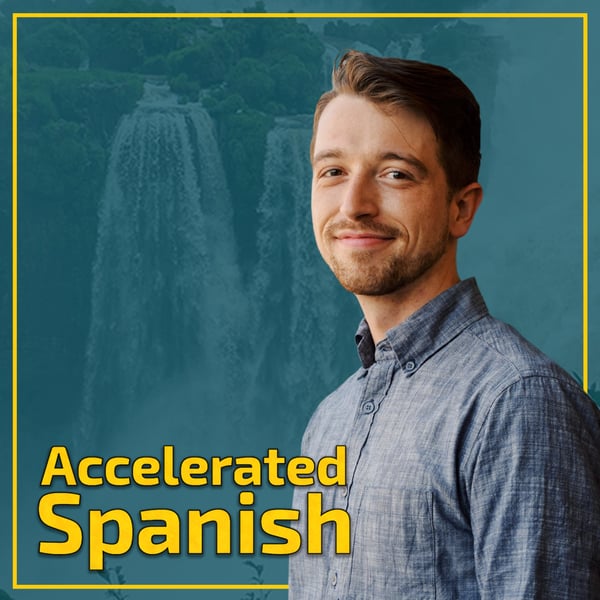AS021: How Adults Learn Spanish
Accelerated Spanish: Learn Spanish online the fastest and best way, by Master of Memory
Timothy Moser
4.2 • 740 Ratings
🗓️ 18 March 2024
⏱️ 26 minutes
🧾️ Download transcript
Summary
Can adults learn languages? Let’s look at the research. This episode explores how adults can actually be BETTER language learners than children.
Want FREE access to all of our learning materials, including videos, dialogues, and quizzes? Head over to www.spanishinonemonth.com.
For additional resources beyond the 12 free Spanish lessons mentioned above, visit us on YouTube at https://www.youtube.com/@learncraftspanish/videos
Transcript
Click on a timestamp to play from that location
| 0:00.0 | Accelerated Spanish, Episode 21. |
| 0:03.0 | How fast do you want to be fluent in Spanish? |
| 0:06.0 | Using our tested system that combines timeless language learning hacks with a memory palace of mnemonics, |
| 0:11.0 | you can be ready to integrate with native speakers in as little as one month. |
| 0:15.0 | This week, we have so much vocabulary to learn that we won't spend long on theory today, |
| 0:20.0 | which we normally do on Mondays. |
| 0:22.6 | At the end of this episode, we'll go ahead and learn several new conjugations and prepositions |
| 0:27.0 | to get a head start on the week. But first, let's talk a little bit about a language learning |
| 0:32.4 | myth that cripples many aspiring Spanish speakers, the myth that adults can't learn a second language |
| 0:39.6 | as easily as a child can. It's the idea that suddenly after you turn 15 or 20 or 40 or something, |
| 0:47.7 | you suddenly hit a wall and can't learn a new language effectively. If you are tempted to use your age as an excuse, I have news for you. |
| 0:58.4 | Children are not better than adults at learning a second language. Controlled studies throughout the |
| 1:05.6 | decades that have tested this have demonstrated that this is true. Here are just a few examples. Asher and Price, |
| 1:12.0 | 1967. There were three groups of students who were tested on how well they could learn German. |
| 1:17.5 | So there were elementary kids from 4 to 11, junior high kids from ages 12 to 14, and college |
| 1:23.7 | kids 18 to 25. And in their conclusion, they wrote that both the junior high and |
| 1:29.3 | college groups were superior to the elementary age group. And then in 1973, Olson and Samuels, |
| 1:37.0 | adolescents and children were given short lessons in German pronunciation, and the adolescents |
| 1:42.4 | performed better than the children. |
| 1:57.9 | In 1975, we have Fathman, a non-English-speaking children, ages ranging from 6 to 15, were tested on their ability to learn grammatical structures of the English language, and the older children scored higher. |
| 2:03.1 | And then in X-Strand, 1976, immigrants of many ages were tested on their learning of Swedish within a short period of time. The older students performed better |
| 2:08.7 | than the younger students in all areas tested. In a 1978 study, three groups were working on |
... |
Please login to see the full transcript.
Disclaimer: The podcast and artwork embedded on this page are from Timothy Moser, and are the property of its owner and not affiliated with or endorsed by Tapesearch.
Generated transcripts are the property of Timothy Moser and are distributed freely under the Fair Use doctrine. Transcripts generated by Tapesearch are not guaranteed to be accurate.
Copyright © Tapesearch 2025.

